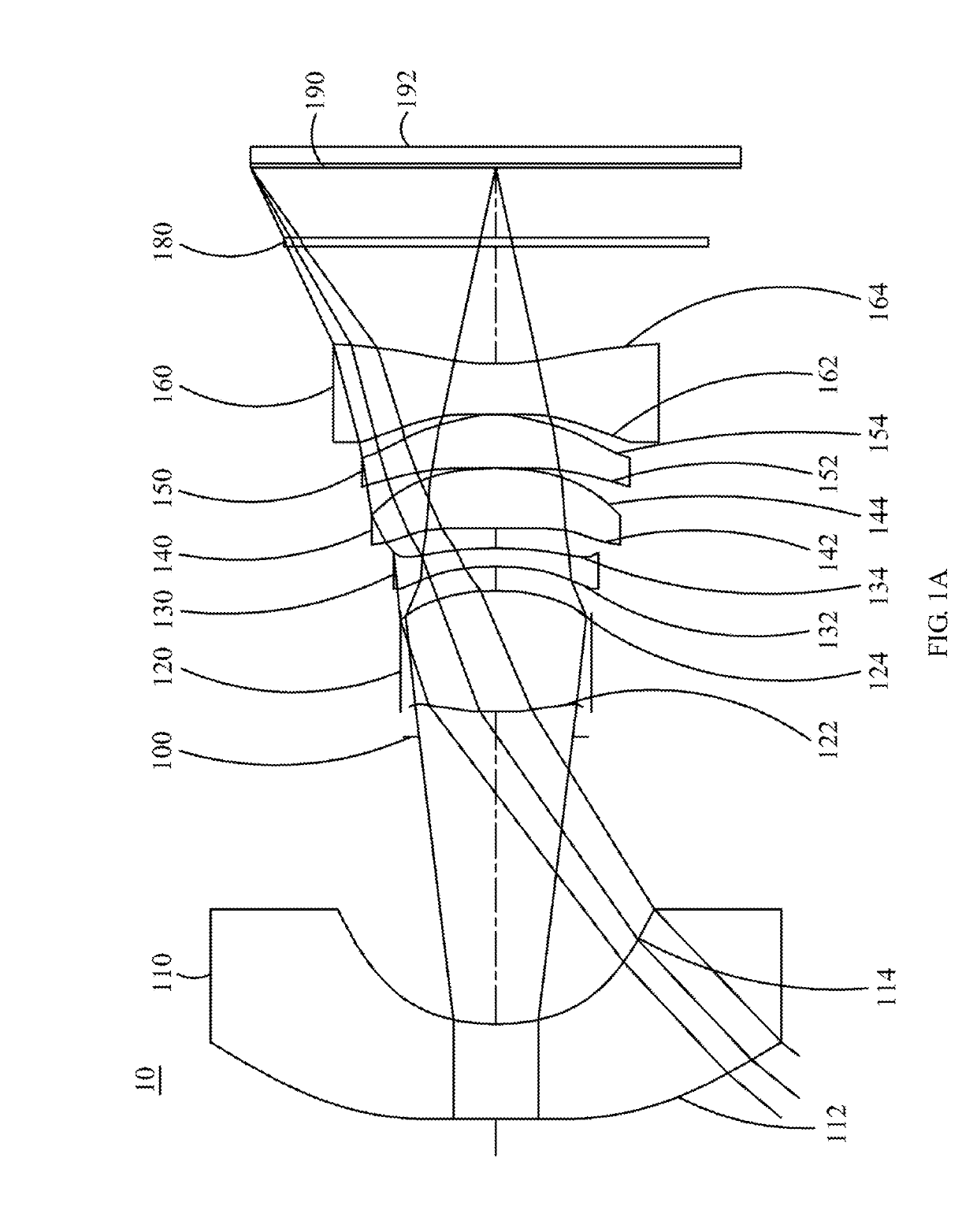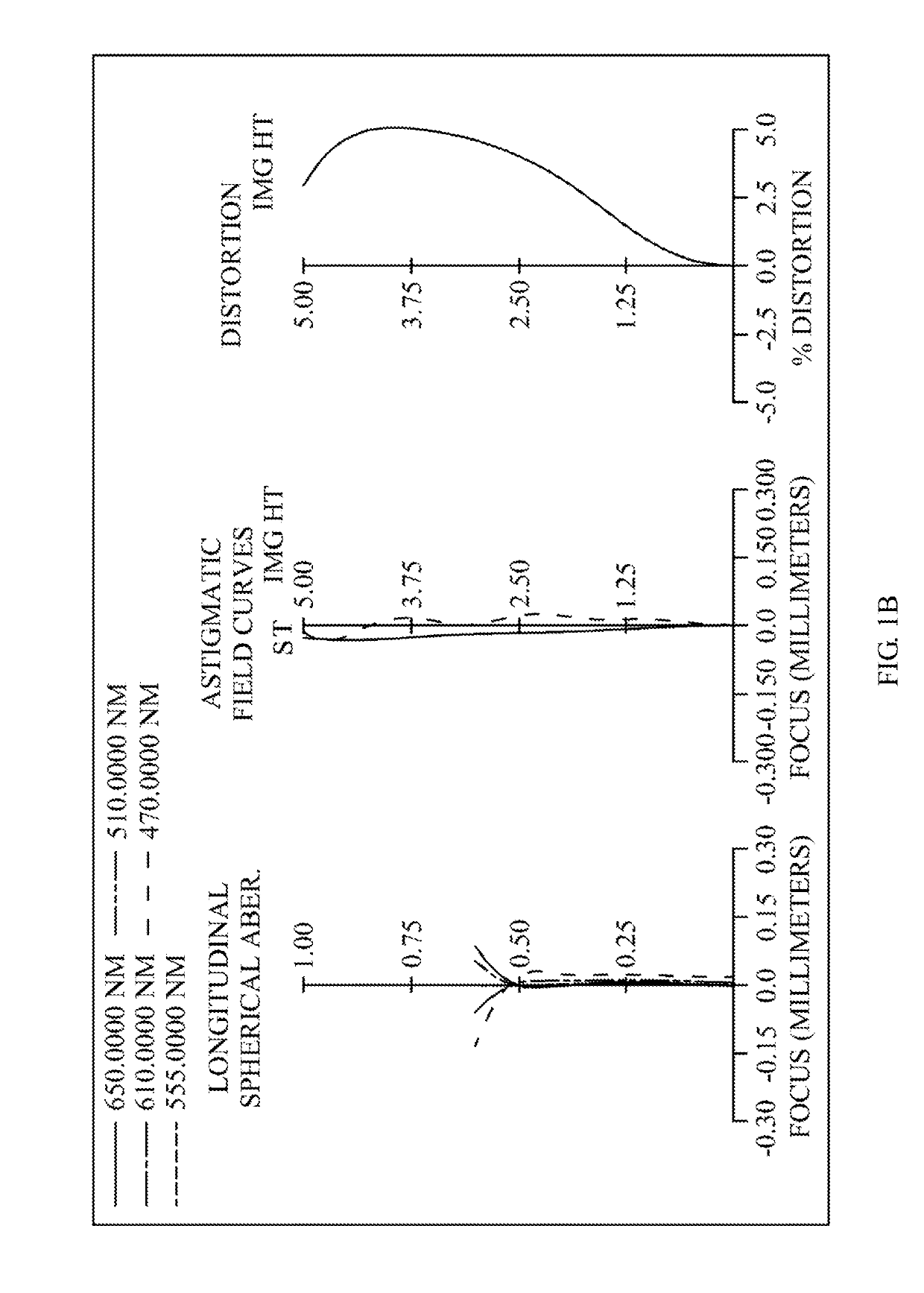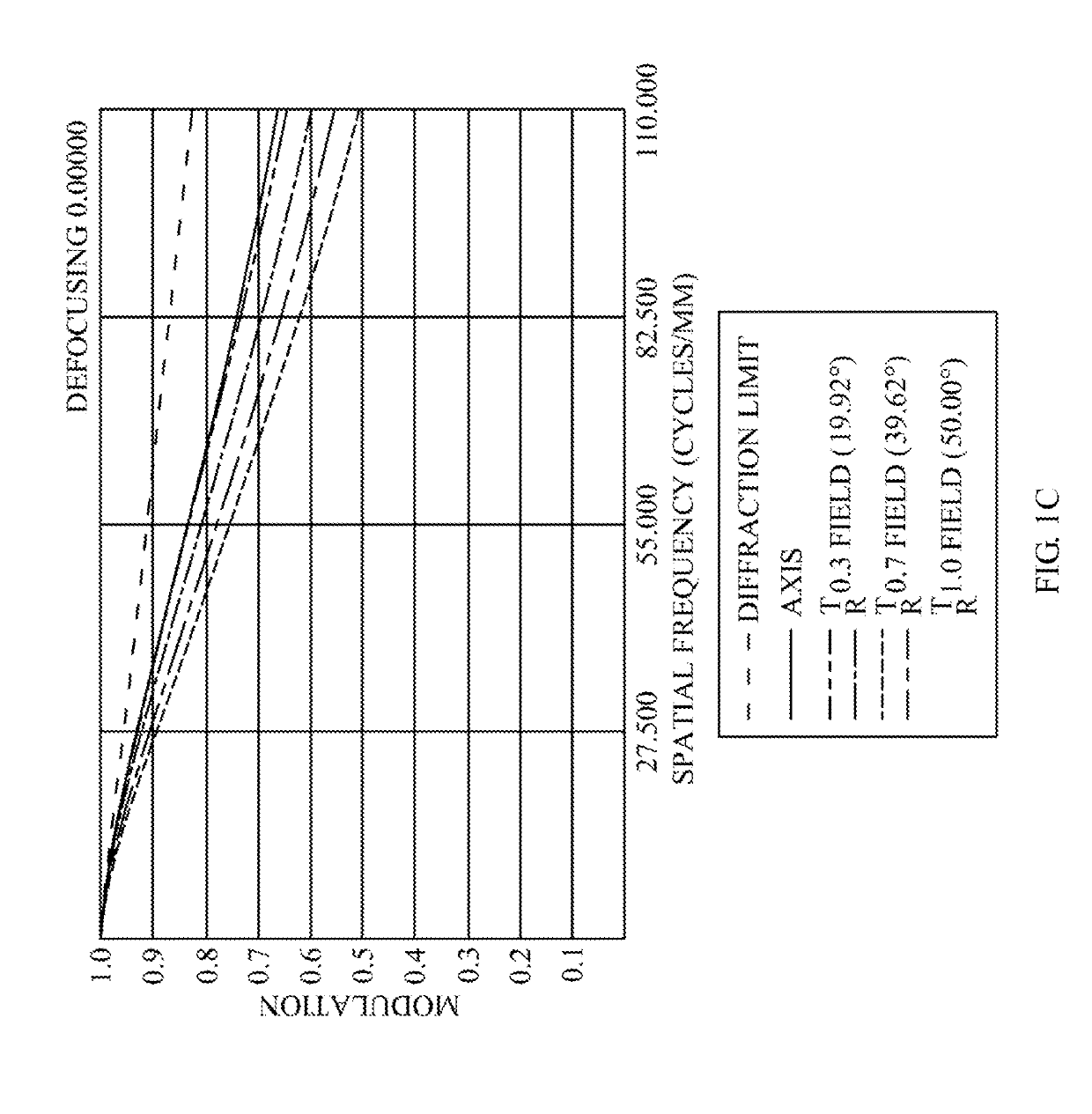Optical image capturing system
a technology of optical image and capturing system, which is applied in the field of can solve the problems of affecting the design and manufacture of miniaturized surveillance cameras in the future, occupying a significant amount of space for the elements of the icr, and being expensive, so as to reduce the back focal length shorten the height of the optical image capturing system, and reduce the cost of production
- Summary
- Abstract
- Description
- Claims
- Application Information
AI Technical Summary
Benefits of technology
Problems solved by technology
Method used
Image
Examples
first embodiment
The First Embodiment
[0115]Please refer to FIG. 1A and FIG. 1B, wherein FIG. 1A is a schematic view of the optical image capturing system according to the first embodiment of the present invention and FIG. 1B shows the longitudinal spherical aberration curves, astigmatic field curves, and optical distortion curve of the optical image capturing system in the order from left to right according to the first embodiment of the present invention. FIG. 1C is a characteristic diagram of modulation transfer of the visible light spectrum according to the first embodiment of the present invention. FIG. 1D is a diagram showing the through focus MTF values (Through Focus MTF) of the visible light spectrum at the central field of view, 0.3 field of view, and 0.7 field of view of the first embodiment of the present invention. FIG. 1E is a diagram showing the through focus MTF values of the infrared light spectrum at the central field of view, 0.3 field of view, and 0.7 field of view of the first em...
second embodiment
[0188]Please refer to FIG. 2A and FIG. 2B. FIG. 2A is a schematic view of the optical image capturing system according to the second embodiment of the present invention. FIG. 2B shows the longitudinal spherical aberration curves, astigmatic field curves, and optical distortion curve of the optical image capturing system of the second embodiment, in the order from left to right. FIG. 2C is a characteristic diagram of modulation transfer of the visible light spectrum according to the second embodiment of the present invention. FIG. 2D is a diagram showing the through focus MTF values (Through Focus MTF) of the visible light spectrum at the central field of view, 0.3 field of view, and 0.7 field of view of the second embodiment of the present invention. FIG. 2E is a diagram showing the through focus MTF values of the infrared light spectrum at the central field of view, 0.3 field of view, and 0.7 field of view of the second embodiment of the present invention.
[0189]As shown in FIG. 2A,...
third embodiment
[0201]Please refer to FIG. 3A and FIG. 3B. FIG. 3A is a schematic view of the optical image capturing system according to the third embodiment of the present invention. FIG. 3B shows the longitudinal spherical aberration curves, astigmatic field curves, and optical distortion curve of the optical image capturing system, in the order from left to right, according to the third embodiment of the present invention. FIG. 3C is a characteristic diagram of modulation transfer of the visible light spectrum according to the third embodiment of the present invention. FIG. 3D is a diagram showing the through focus MTF values (Through Focus MTF) of the visible light spectrum at the central field of view, 0.3 field of view, and 0.7 field of view of the third embodiment of the present invention. FIG. 3E is a diagram showing the through focus MTF values of the infrared light spectrum at the central field of view, 0.3 field of view, and 0.7 field of view of the third embodiment of the present inven...
PUM
 Login to View More
Login to View More Abstract
Description
Claims
Application Information
 Login to View More
Login to View More - R&D
- Intellectual Property
- Life Sciences
- Materials
- Tech Scout
- Unparalleled Data Quality
- Higher Quality Content
- 60% Fewer Hallucinations
Browse by: Latest US Patents, China's latest patents, Technical Efficacy Thesaurus, Application Domain, Technology Topic, Popular Technical Reports.
© 2025 PatSnap. All rights reserved.Legal|Privacy policy|Modern Slavery Act Transparency Statement|Sitemap|About US| Contact US: help@patsnap.com



